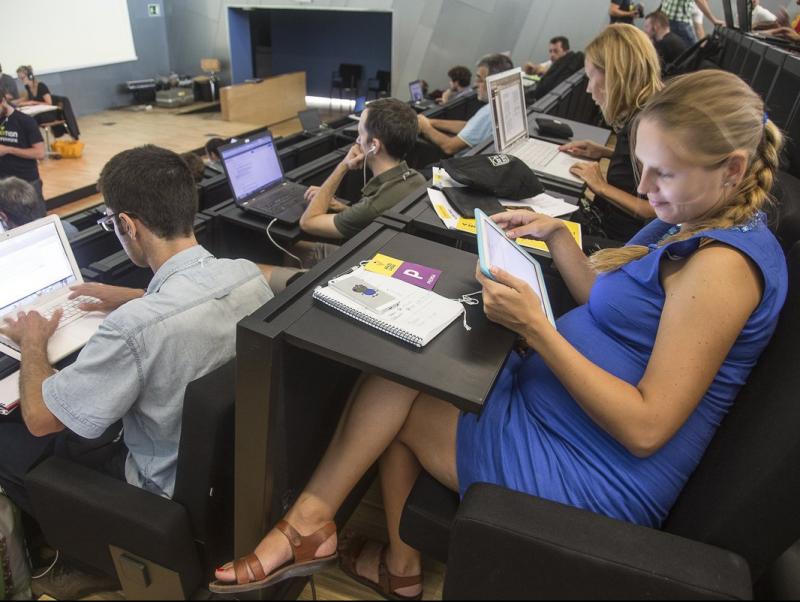france. international press reaction
What the neighbours say
French journalists following the Catalan sovereignty process highlight the reluctance of their highly-centralised government to take on board the arguments of the Catalan executive
In July, in a news conference with Spanish prime minister, Mariano Rajoy, Emmanuel Macron avoided any statements on the political situation in Catalonia. The French president limited himself to saying “it is an internal issue of Spain.” Macron was merely following the same line as other French leaders in avoiding taking a stand on the Catalan process. Apart from France’s reluctance to make an enemy out of Spain, there are other reasons for the caution.
One is Northern Catalonia. The French government recently expressed concern over a parliamentary resolution asking for the self determination of Catalonia under French jurisdiction. To this should be added France’s tradition of a highly-centralised state. According to journalist Mathieu de Taillac, who has followed the Catalan process in the past few years, “France is a country of Jacobine tradition in which the concept of equity is usually associated to the idea of the unity of the country,” he says, adding that “when, for instance, the level of autonomy of the Catalan government, the wealth or the situation of the Catalan language is explained to a French audience, a common reaction is: “What else do they want?” This analysis is shared by journalist Henry de Laguérie, who, while admitting some similarities with Corsica or Brittany, nevertheless insists that “they are absolutely incomparable situations.” De Laguerie, a correspondent for Europe 1, suggests that the level of understanding of the Catalan political situation has improved in France, especially due to more media coverage.
Traditional stance
Referring to a scenario on October 2 after a victory of the ’yes’ vote in the referendum, De Taillac, correspondent for Le Figaro and Radio France, thinks it would still be difficult to get the French government to give up its traditional political stance. “They would renew their support for the Spanish government and would stress the importance of agreed legal processes and the illegitimacy of unilateral actions.” He adds that “the Scottish referendum was tolerated because it was endorsed by London, but they weren’t very comfortable with it.” Meanwhile, De Laguérie insists that it remains to be seen whether something will happen or not, although he does admit that the process has entered a decisive stage. The French media have been among the most reluctant to take on board the arguments and actions of the Catalan government, despite a significant shift in the past few months. Proof is the editorial this summer in Le Figaro, which criticised the attitude of the Spanish government as “rigid and incapable” of generating any initiative to resolve the Catalan conflict.






